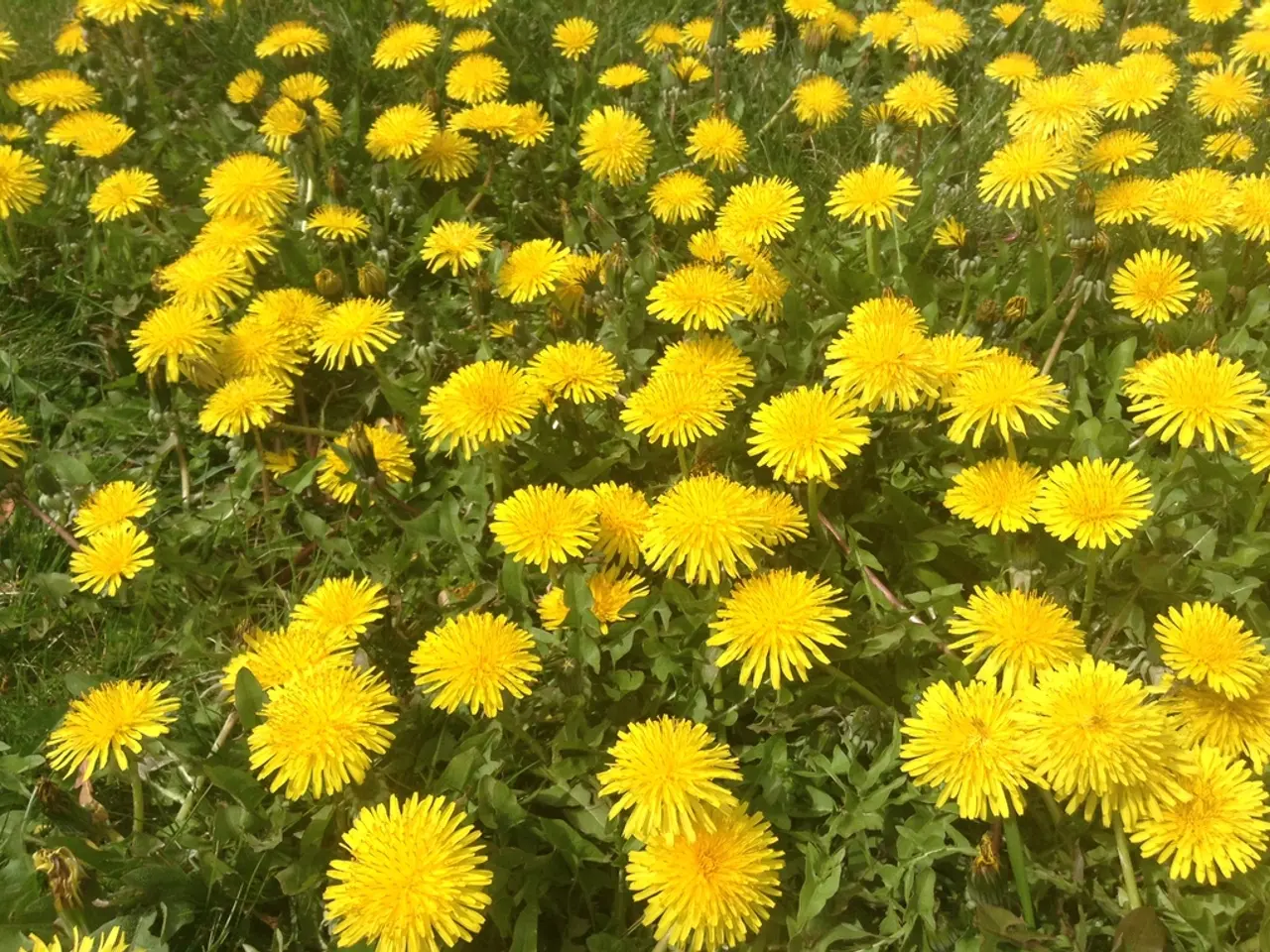Golden Shower Tree: Cassia Fistula's Fascinating Fusion of Aesthetics, Custom, and Environmental Allure
The Cassia Fistula, commonly known as the Golden Shower Tree, is a medium-sized deciduous tree belonging to the Fabaceae family. This vibrant plant, native to tropical regions, is renowned for its profuse flowering during the dry season, adorning branches with long, pendulous racemes of bright yellow flowers.
The tree's leaves are pinnate, comprising several pairs of leaflets. In India, it is the state flower of Kerala and known as "Amaltas" in Hindi. In Thailand, it holds a special place as both the national tree and flower, and is called "Ratchaphruek."
Beyond its well-known laxative properties, Cassia Fistula has several other medicinal uses. In traditional Ayurvedic medicine, it is esteemed for its therapeutic properties, particularly for its gentle laxative effect.
Beyond laxative benefits, Cassia Fistula exhibits antimicrobial activity, combating various microbial infections. This makes it useful for treating skin infections, acne, and wounds, promoting faster healing. The leaves and bark of the tree also possess anti-inflammatory compounds, helping reduce swelling and pain, making it beneficial in managing arthritis and other inflammatory conditions.
The plant contains bioactive compounds such as flavonoids and anthraquinones, which contribute to its antioxidant properties. These help manage oxidative stress, potentially contributing to overall health and protection against cellular damage.
Research indicates that Cassia Fistula may help regulate blood sugar levels, suggesting a role in diabetes management. It also shows promising liver-protective activities, potentially supporting liver health and preventing damage from toxins. Some studies suggest that it may have cancer-inhibiting compounds, though this is an area requiring more research for clinical confirmation.
In traditional remedies, Cassia Fistula extracts are used to detoxify the body and purify the blood, linking to its antioxidant and cleansing properties. The dark brown pods of the tree contain numerous seeds embedded in a sticky pulp.
In summary, Cassia Fistula serves not only as a natural laxative but also as a potent antimicrobial, anti-inflammatory, antioxidant, antidiabetic, hepatoprotective, and potentially antitumor agent. Its applications span wound healing, inflammation reduction, blood sugar control, and liver protection. The diverse medicinal properties come from various phytochemicals such as flavonoids, saponins, anthraquinones, tannins, and glycosides present in different parts of the tree.
- The medicinal uses of Cassia Fistula extend beyond its well-known laxative properties, venturing into the realm of environmental science and health-and-wellness.
- antioxidant properties of Cassia Fistula may contribute to overall lifestyle including protection against cellular damage and skin-conditions.
- The environmental science sector could find applications for Cassia Fistula in managing climate-change, as it shows promise in regulating blood sugar levels and liver-protective activities.
- The fashion-and-beauty industry may also take interest in the antimicrobial properties of Cassia Fistula for creating products that combat acne and other skin-conditions.
- It's possible that the home-and-garden sector, particularly in home-and-garden hobbyist groups, could promote Cassia Fistula for its environmental benefits, as it can help manage oxidative stress and its impact on various medical-conditions.




